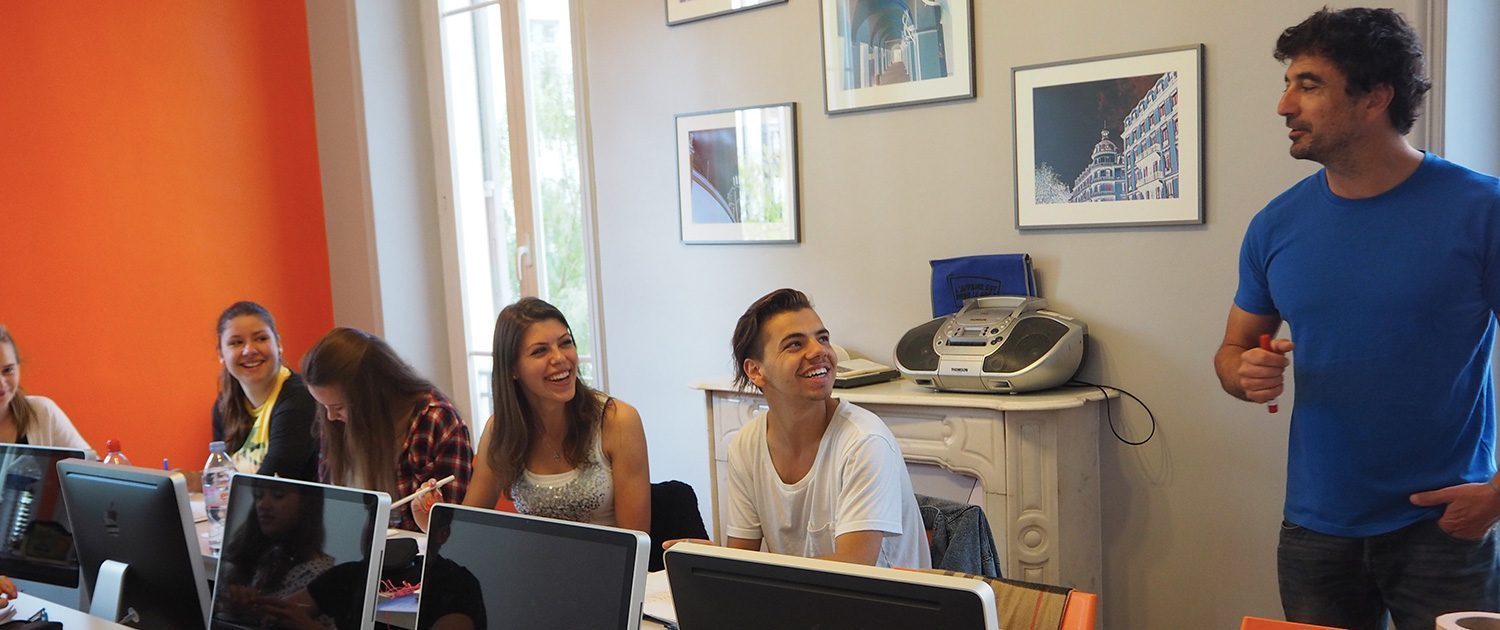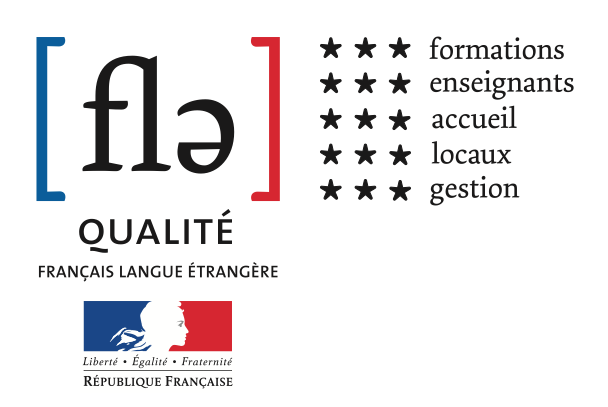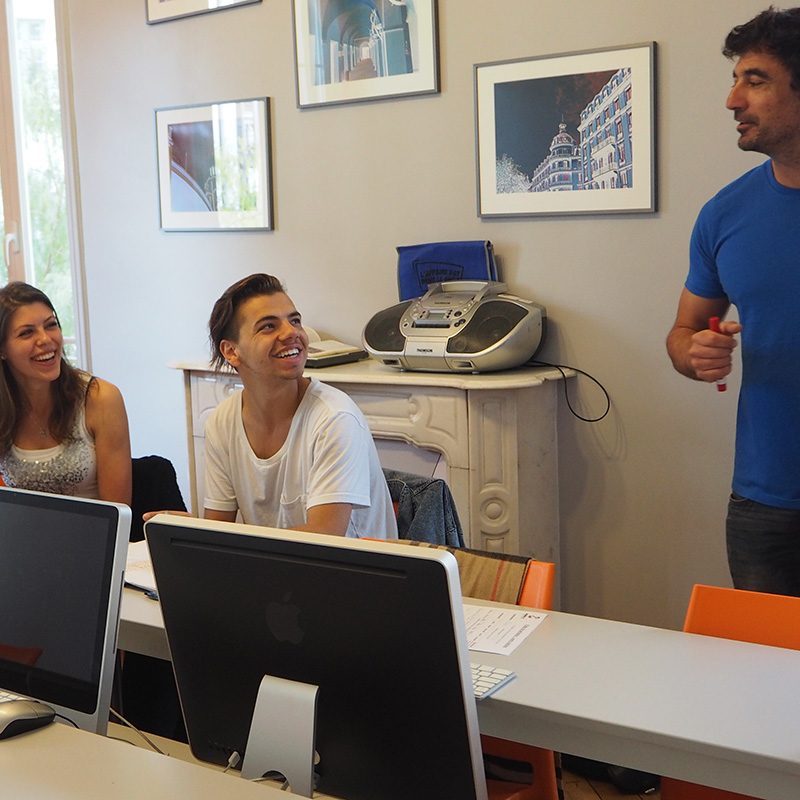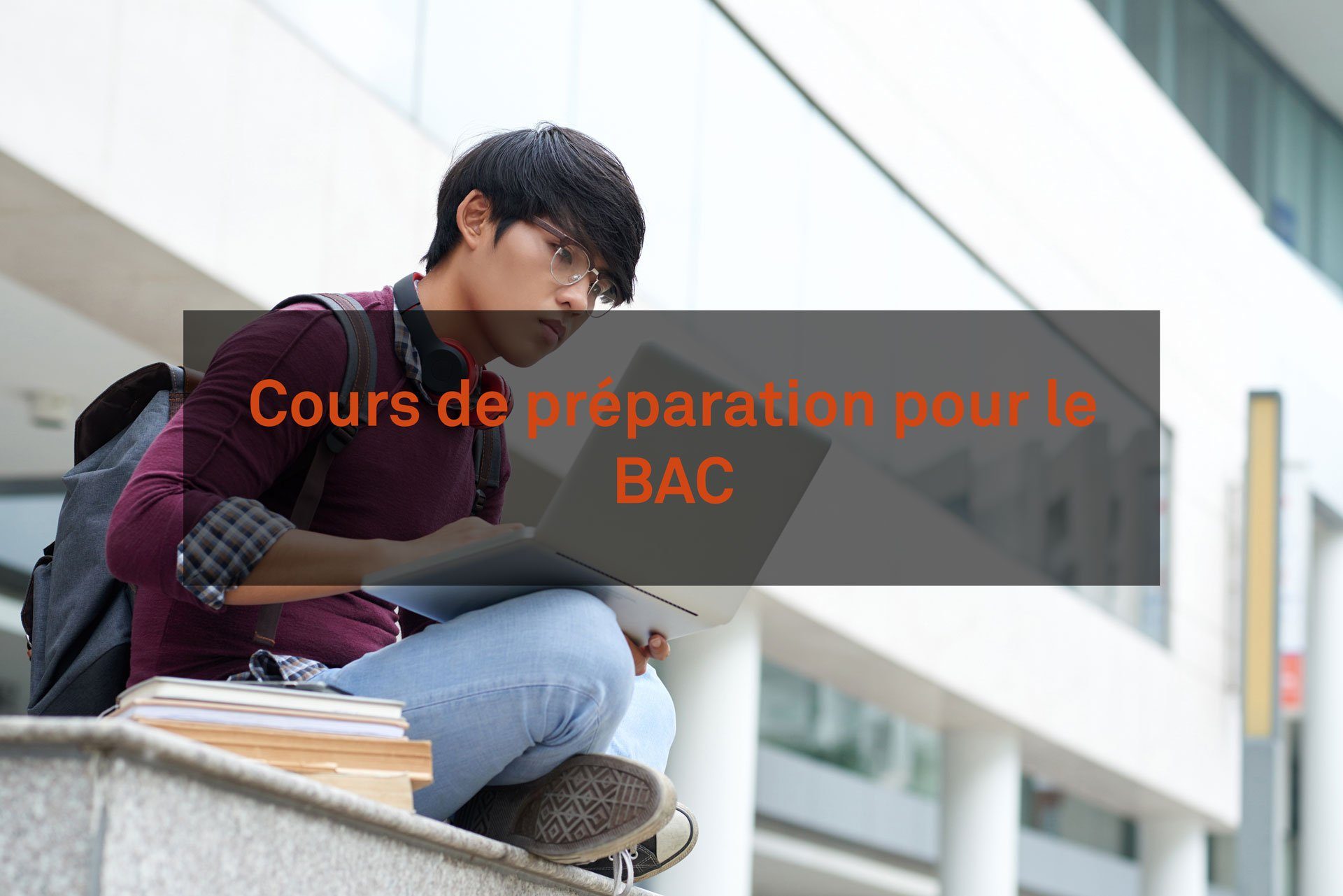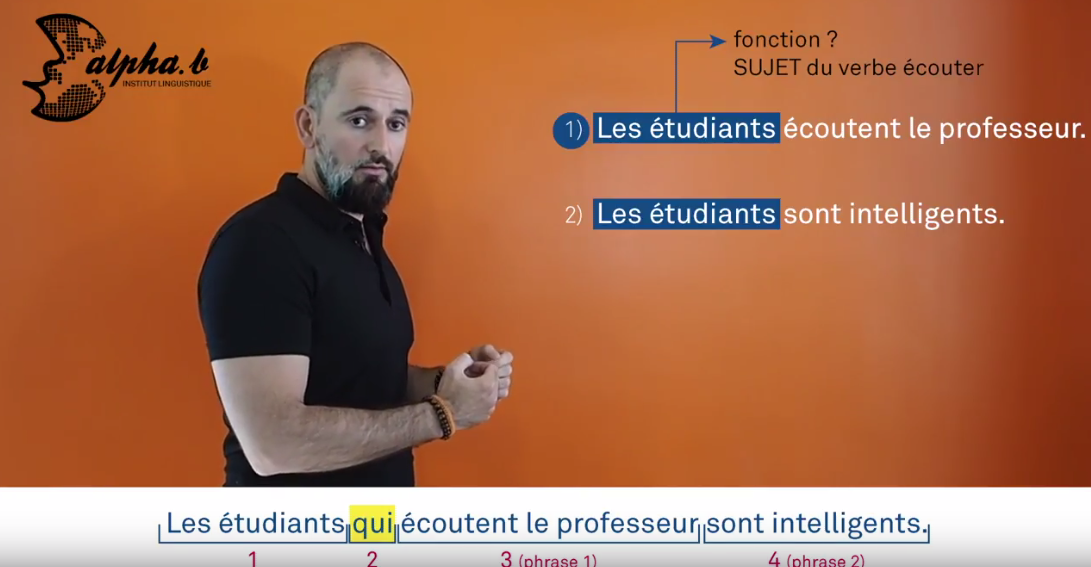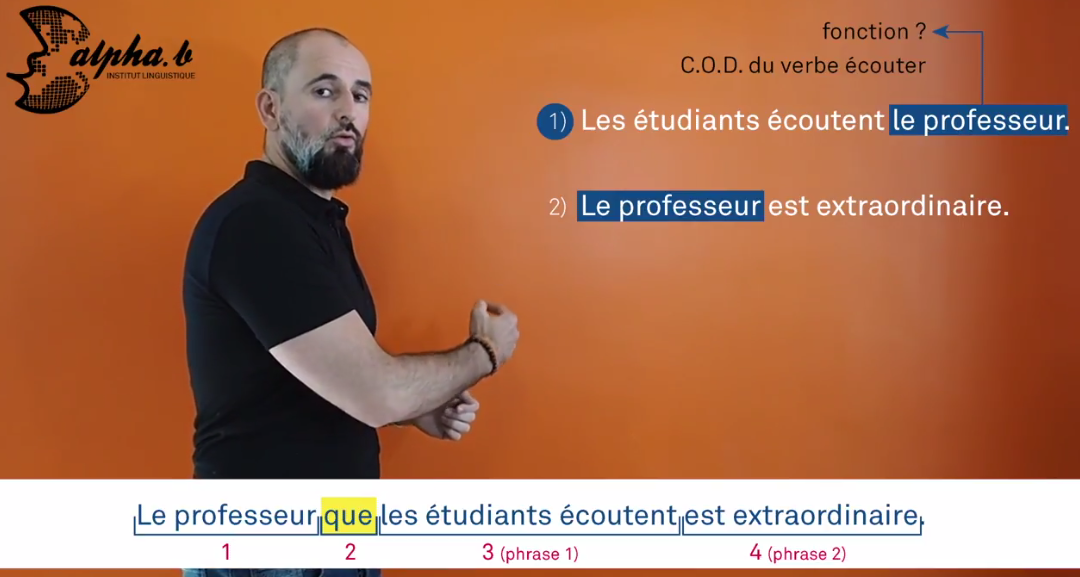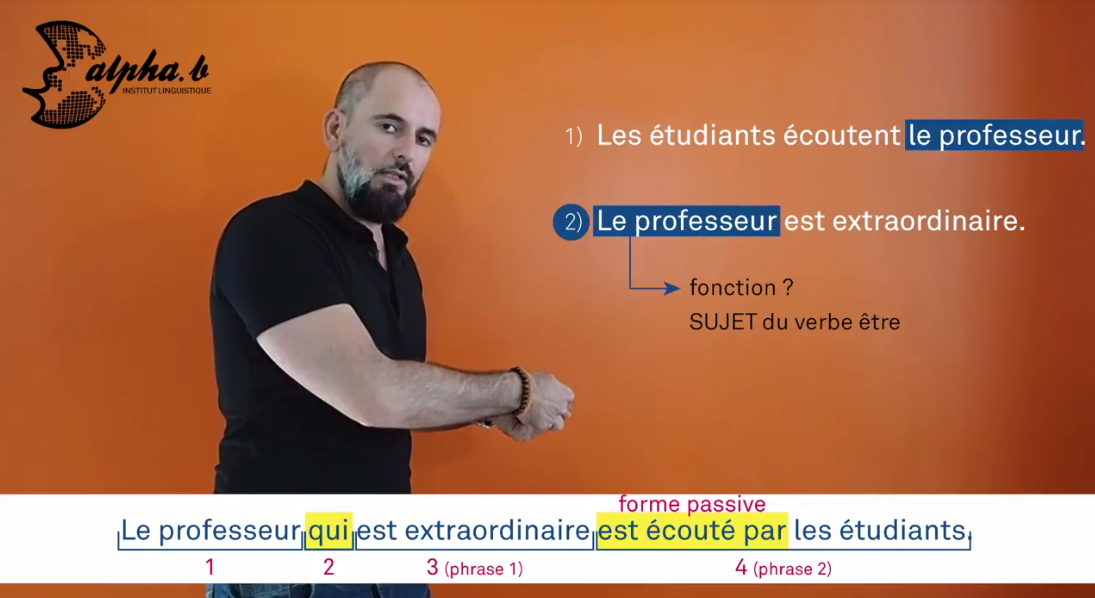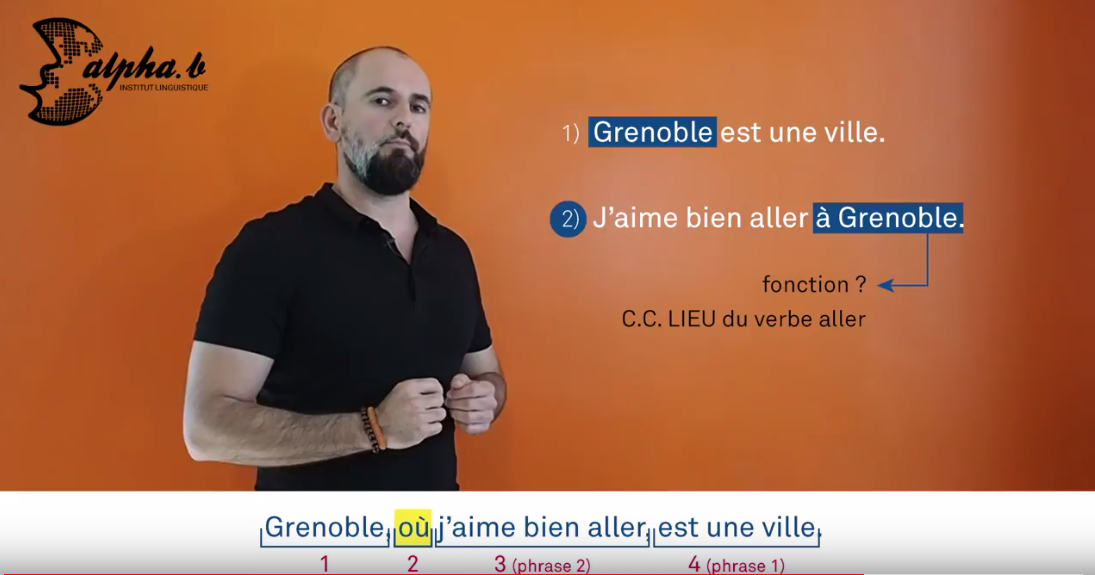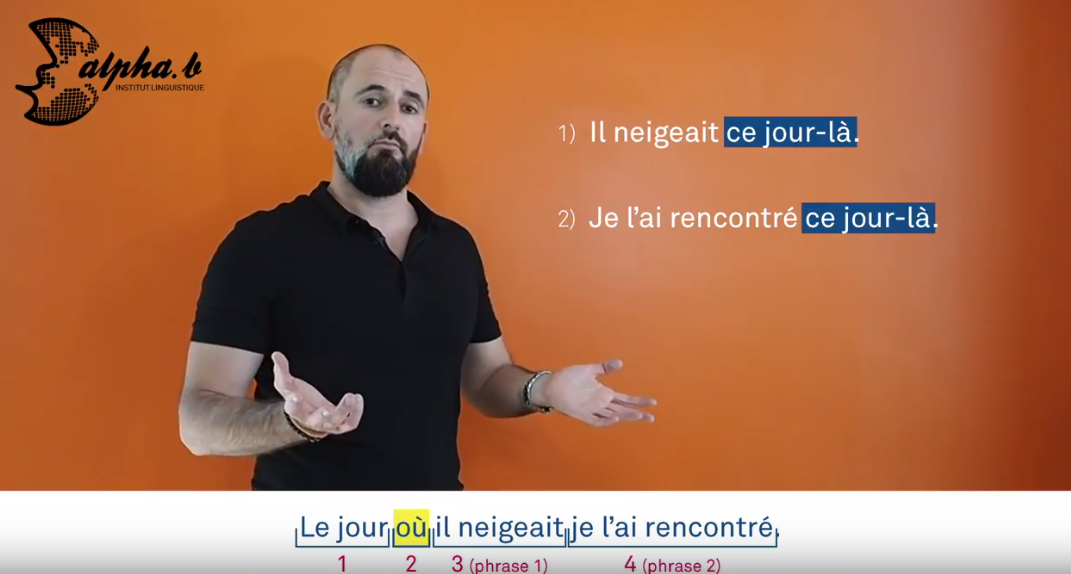You are right now preparing for your A Level this year ? And you are wondering how to ace your French A Level ?
And French is one of your subject.
At alpha.b French school we have been preparing students to ace their French A level test for many, many years.
Each Easter and Summer we offer 1 week or 2 weeks sessions, full immersion in the French language, so you can practice, enjoy life in France, study, revise, work on your weak spot and be fully prepared for your A Level on D-day.
But this Easter, it might not be possible for you to travel to Nice to follow the A Level preparation course.
No worry, we have decided to offer the same exact class but online, during the week of the 29th of March until the 2sd of April.
We will be using Zoom.
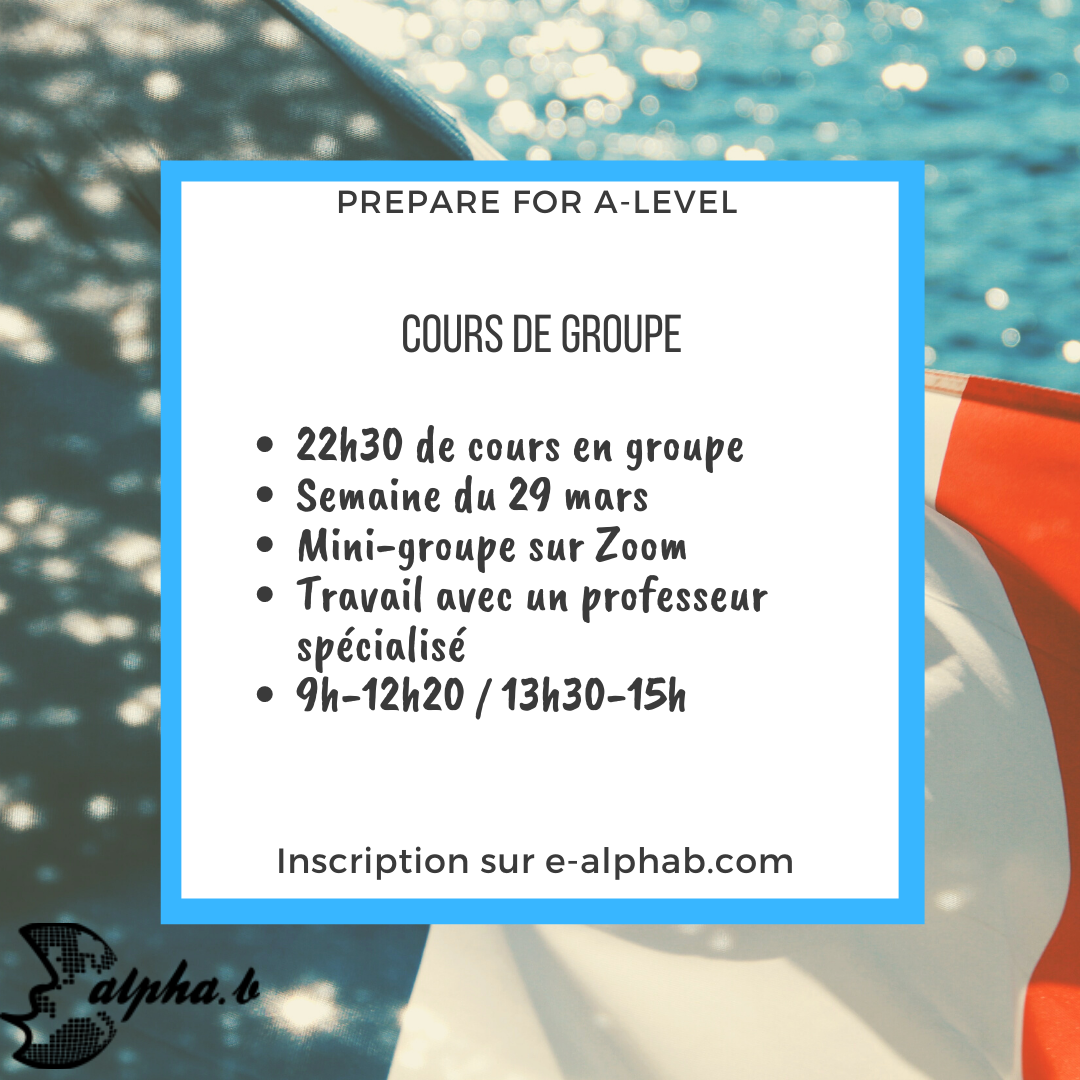
You will have class every morning from 9.00 to 12.20 and from 1.30 to 3.00, in small groups, A level oriented with a specialised teacher from our well-known school.
You can decide to join the course right now and get 20% off the tuition.
The price is 320€ instead of 400€ for 22h30 of French online live class.
Ready for our 5 tips to ace your A Level test ?
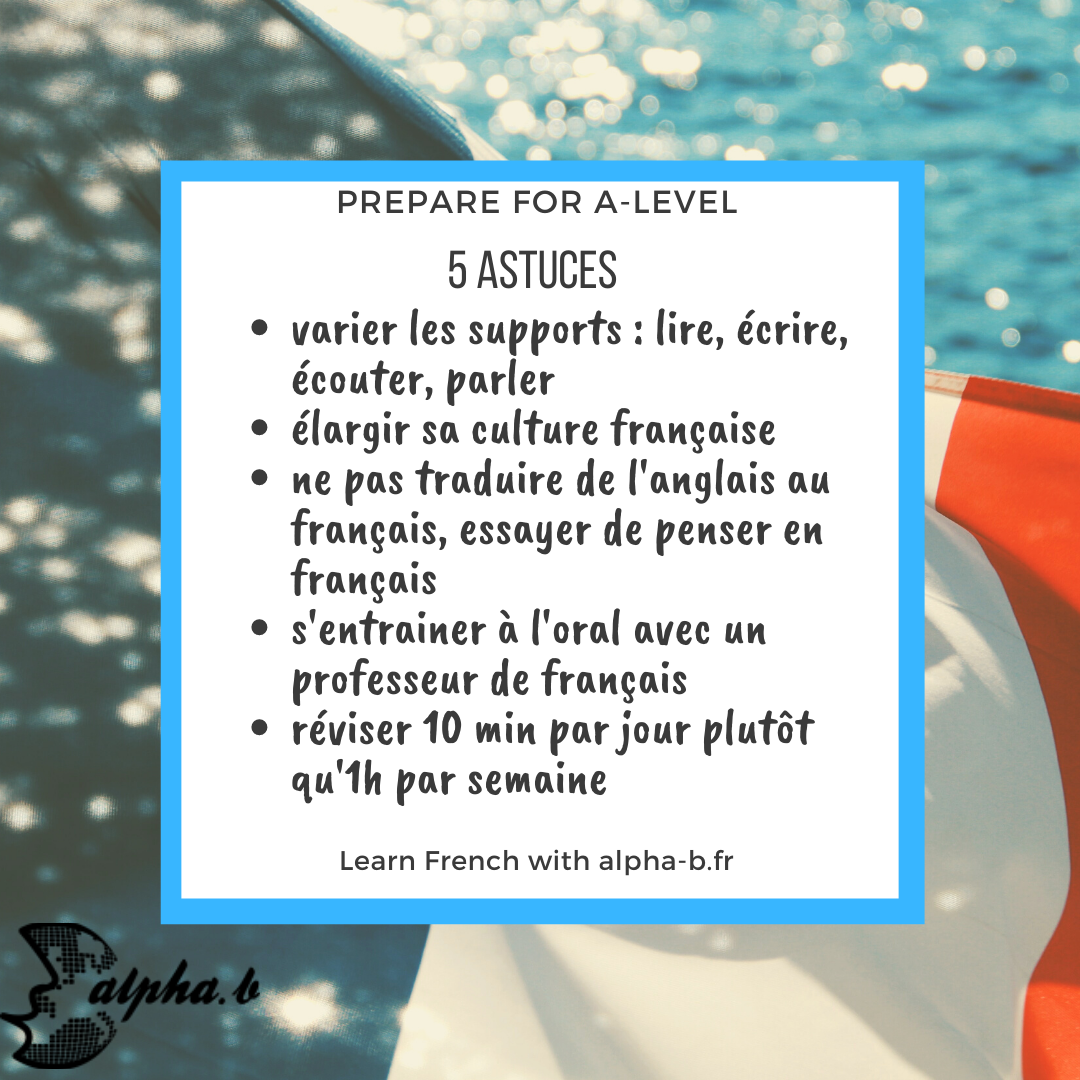
Tip n°1 : Variety of teaching methods: reading, writing, listening, speaking.
Each of us has a personal and different way of learning.
Some of us love to listen and rehearse. They remember everything they have heard very easily.
Others prefer to write and rewrite their lessons, so that the written word becomes imprinted in their heads.
Still others like to read, books, magazines, blogs and learn a lot of new vocabulary just like that.
But the most important thing for everyone is to talk! Without the oral practice of the French language, you can’t progress.
We’ll see more of that in Tip #4.
Tip n°2 : Broadening its French culture
Knowing the language is one thing, knowing the culture is another.
And it is often said that to understand a language, you must also understand the culture.
This is why it is really a plus for your A Level exam to know some parts of French culture, related to your theme.
How easy is it to learn about French culture?
There are several possibilities:
– watching French films or series, it allows you to discover the specificities of French life.
– read masterpieces by French authors
– to take French courses with native French people, who will speak to you naturally about our culture.
Tip 3 : Do not translate from English to French, try to think in French.
Easier said than done because we all tend to do this: we think in our own language and then we try to translate into French.
But this technique leads to several mistakes:
– the synthax of the sentence in French will be wrong, because it is very different from the English or German synthax.
– Beware of false friends (faux-amis), many words seem to be the same in French and English but in reality their meaning is completely different.
– beware of the agreements, there are many agreements in gender and number in French that are not found in English.
Tip 4 : Practise speaking with a French teacher
As we said in Tip #2, the most important is to practise your oral French.
And this is often the most difficult thing to do. Whether it is in your school, because there are a lot of students and therefore it is difficult to speak. Or with your friends, because you will always prefer to speak in your native language.
This is why a stay in immersion in France is the best way to practice your speaking.
But if you can’t come yet, an online and immersion course like the one we are offering on March 29th is also a great alternative.
Our courses are in small groups and our teachers take the time for each student, giving them the opportunity to express themselves and improve.
Tip 5 : Study 10 minutes a day rather than 1 hour a week
Consistency is the key.
You learn much better and retain a language much more easily if you practise it daily.
Even if it is only 10 minutes a day.
So what can you do during those 10 minutes a day?
You can watch one of our Youtube videos for example, revise a grammar point, your phonetics, do a dictation.
You can train with our 100% free online exercises on our « Free French Class » platform. Register here.
You can read an article in French or watch a mini-series.
You can repeat the vocabulary you learned the day before.
Or take a quiz on our Instagram.
So now you have 5 tips to ace your A Level exam (or any French exam). Which one will you do first ?
Don’t forget, if you book your A Level preparation online course before the 28th of February, get 20% off and pay only 320€. Click here.






